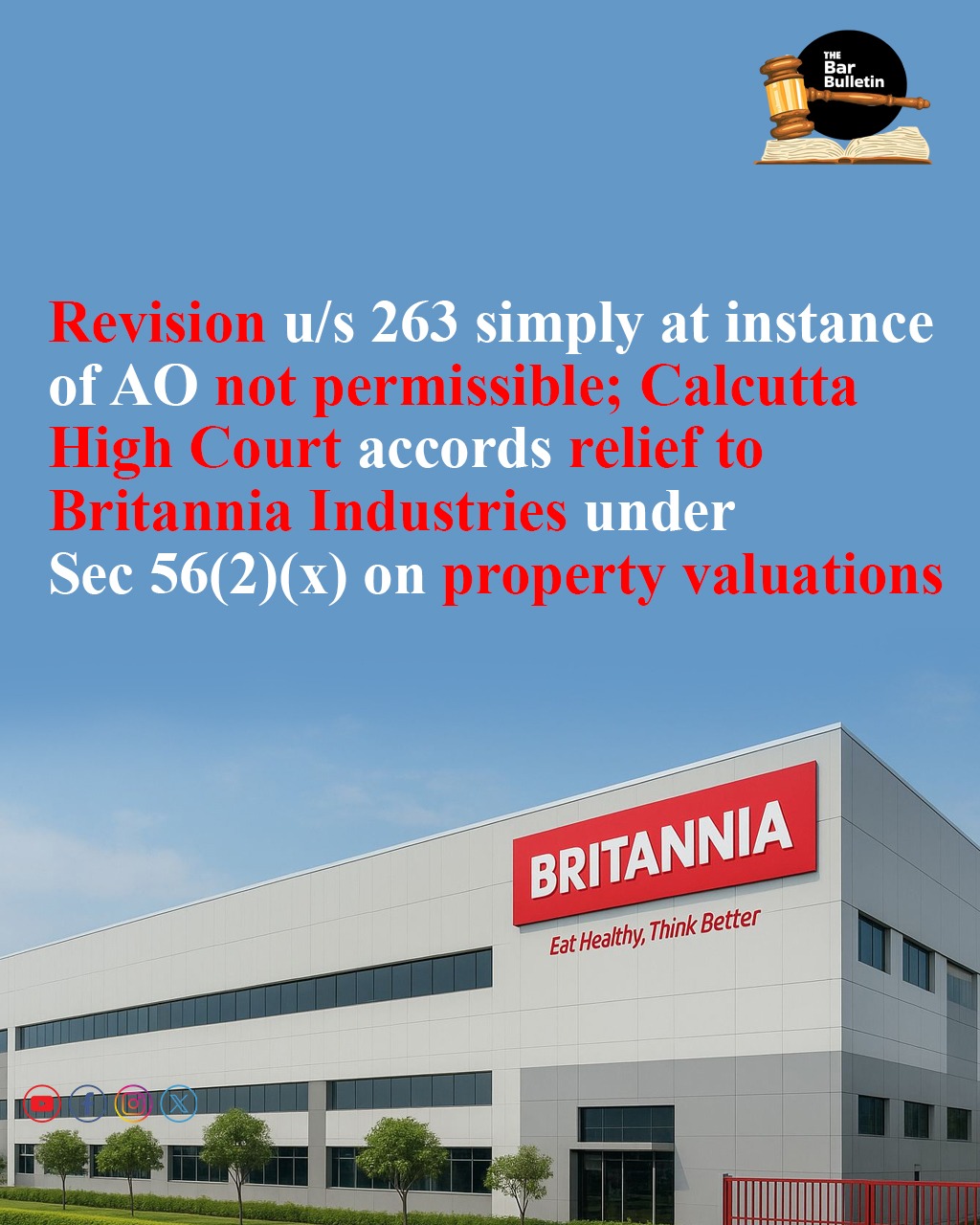Finding that the Principal CIT had invoked its jurisdiction under Section 263 of the Income Tax Act only at the instance of the AO, the Calcutta High Court recently clarified that the invocation of revisionary power under Section 263 cannot be solely based upon the reference made by the AO, and it can be invoked only when the twin conditions i.e., assessment order being erroneous and prejudicial to the interest of revenue, stands satisfied. Since none of the twin conditions stand fulfilled in the present case, the High Court granted relief to Britannia Industries from the rigours of revisionary interference by the Principal CIT.
As far as the valuation of the property acquired from Bombay Dyeing and Manufacturing Company Limited, after approval from the Maharashtra Industrial Development Corporation, is concerned, the Division Bench comprising Chief Justice T.S. Sivagnanam and Justice Chaitali Chatterjee (Das) noted that the land and building were acquired for the setting up of a mega industrial unit and the Government of Maharashtra had sanctioned several incentives which includes 100% reimbursement of capital investment made by the respondent company.
The Bench therefore explained that the respondent had not gained in any manner whatsoever from valuing the property at a lower value than the value adopted by the Stamp Duty Authority. The Bench also found that the property was valued on a scientific basis after conducting due diligence by a registered valuer, and it was not fully developed and had uneven surfaces, and the respondent had to spend substantial money to enable the setting up of a mega industrial unit.
That apart, the Bench pointed out that the Income Tax Act has a provision for disputing the stamp value being taken as the full value of consideration in certain cases in section 50C of the Income Tax Act, and the very existence of such a provision is a clear indication that the valuation adopted by the Stamp Authorities is not always sacrosanct and power has been given for reference to the valuation authority where the taxpayer would also be entitled to contest such valuation as the said authority is being treated as an expert on the said subject.
The Bench went ahead to observe that while submitting the reply to the show-cause notice, the respondent had pointed out that section 56(2)(x) of the Income Tax Act would not apply as the property was acquired by the respondent pursuant to an agreement for sale dated December 31, 2016 and on the said date section 56(2)(x) was not in the statute book as it was inserted with effect from April 01, 2017. Hence, the order passed under Section 263 was thoroughly faulty.
In this case, essentially, the Appellant/ Revenue Department had challenged the action of the ITAT in quashing the order passed under section 263 by holding that the jurisdiction had been invoked by the PCIT-1, Kolkata, at the instance of the AO. The Department had also challenged the action of the ITAT in deciding the issue relating to the application of Section 56(2)(x) on acquisition of leasehold property by, not considering that Section 56(2)(x) of the Act (introduced in Finance Act, 2017) was applicable from A.Y. 2018-19, wherein it has been specifically stated that any immovable property acquired by an respondent-taxpayer shall be chargeable to tax under the head ‘Income from Other Sources’ where Stamp Duty value exceeds Rs.50,000/- to the value of consideration, and as such provisions of Section 56(2)(x) is clearly applicable in the instant case as there is a difference of Rs. 89.30 crores in value of acquisition and stamp duty value.
Appearances:
Advocate Amit Sharma, for the Appellant/ Department
Advocates Pratyush Jhunjhunwalla, Sruti Datta, and Sakshi Singhi, for the Respondent

